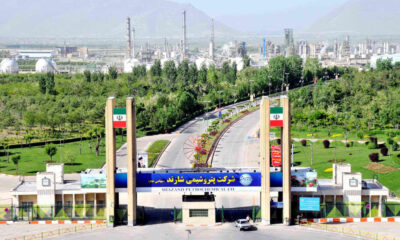World
Assad fled to Russia, Kremlin says

Bashar al-Assad has fled to Russia and been granted asylum, the Kremlin has confirmed, following his ousting by a major opposition offensive. Marking the end of his more than 20-year rule over Syria.
State agency TASS, citing a source in the Kremlin, confirmed that Assad and his family arrived in Moscow, where they were granted asylum by the Russian government. This follows a statement from Russia’s Ministry of Foreign Affairs indicating that Assad left Syria after negotiations with “a number of participants in the armed conflict.”
Assad arrived in Moscow on Sunday, according to the New York Times. So far, the ousted president has not made a public statement or been seen in public.
Opposition forces, leaded by Tahrir al-Sham (HTS), took control of Damascus on Sunday, December 8. Rebels declared victory in a televised address after seizing control of the state’s media broadcasts, shortly after reports indicated that Assad had fled to an unknown destination.
“The city of Damascus has been liberated, the tyrant Bashar al-Assad has been overthrown, and all unjustly detained prisoners have been released,” the rebels stated.
Bashar al-Assad was ousted after 24 years of ruling the country, marking the end of the six-decade al-Assad family regime and this stage of the Syrian civil war, which began in 2011 during the Arab Spring, when thousands protested against Middle Eastern and North African rulers.
The Syrian civil war began when government forces heavily repressed protests across multiple cities, resulting in hundreds of deaths and the formation of factions controlling various areas of Syria. The war escalated, with the involvement of Western powers, predominantly the U.S., after the alleged use of chemical weapons by the Assad government against civilians.
Key factors, including the direct support by Russia and Iran’s proxy groups for the Syrian government, as well as divisions among rebel groups and the rise of extremist Islam and terrorist forces, including ISIS, prolonged the war for over a decade.
Tahrir al-Sham (HTS), heavily supported by Turkey, launched a major offensive in late November, beginning in the Idlib province. Within days, they captured Aleppo, Syria’s second-largest city and a major battleground throughout the civil war. The offensive continued, and other opposition forces joined in, capturing major cities like Hama, Daraa, and Homs with little resistance.
As Assad fled the country, the HTS-led offensive reached its climax with the capture of Damascus. Russia’s Foreign Ministry confirmed that Assad had ordered a peaceful transition of power.
Tahrir al-Sham leader Ahmad Al-Sharaa, also known as “Abu Mohammad al-Julani,” declared that Assad’s prime minister, Mohammad Ghazi al-Jalali, would assume leadership of the government on an interim basis until a new political structure is established. Later that day, al-Jalali called for democratic elections.

-

 World6 days ago
World6 days agoEthiopian volcano erupts for first time in thousands of years
-

 Legal3 days ago
Legal3 days agoUtah Amber Alert: Jessika Francisco abducted by sex offender in Ogden
-

 US News2 days ago
US News2 days agoExplosion destroys home in Oakland, Maine; at least 1 injured
-

 Health3 days ago
Health3 days agoMexico’s September human bird flu case confirmed as H5N2
-

 Legal1 week ago
Legal1 week agoSuspect in San Diego stabbing shot by authorities after fleeing into Mexico
-

 Health1 week ago
Health1 week agoMarburg virus outbreak in Ethiopia grows to 6 confirmed cases
-

 World3 days ago
World3 days agoWoman killed, man seriously injured in shark attack on Australia’s NSW coast
-

 World1 week ago
World1 week agoU.S. sanctions companies and vessels accused of aiding Iranian military oil sales



